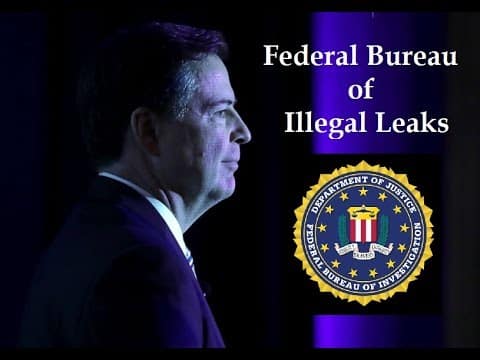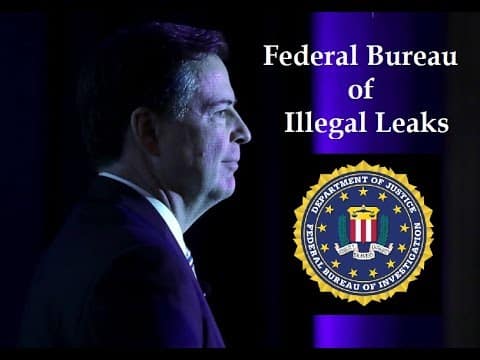One of the most interesting new disclosures today in the Comey hearing was the admission by former FBI Director James Comey that he intentionally used a “friend” on the Columbia law faculty to leak his memos to the media. Comey says that he did so to force the appointment of a Special Counsel. However, those memos could be viewed as a government record and potential evidence in a criminal investigation.
Notably, Columbia Law School Professor Daniel Richman on a faculty webpage reads that he is “currently an adviser to FBI Director James B. Comey.” Richman specializes in criminal law and criminal procedure.
The problem is that Comey’s description of his use of an FBI computer to create memoranda to file suggests that these are arguably government documents. Comey admitted that he thought he raised the issue with his staff and recognized that they might be needed by the Department or Congress. They read like a type of field 302 form, which are core investigatory documents.
The admission of leaking the memos is problematic given the overall controversy involving leakers undermining the Administration. Indeed, it creates a curious scene of a former director leaking material against the President after the President repeatedly asked him to crack down on leakers.
Besides being subject to Nondisclosure Agreements, Comey falls under federal laws governing the disclosure of classified and nonclassified information. Assuming that the memos were not classified (though it seems odd that it would not be classified even on the confidential level), there is 18 U.S.C. § 641 which makes it a crime to steal, sell, or convey “any record, voucher, money, or thing of value of the United States or of any department or agency thereof.”
There are also ethical and departmental rules against the use of material to damage a former represented person or individual or firm related to prior representation. Lawyers generally ask for clients or employers to release information, particularly when it may be detrimental to the firm or the client or someone associated with your prior representation.
By the way, waking up in the middle of the night (as described by Comey) is not generally the best time to decide to leak damaging memos against a sitting president. There are times when coffee and a full night’s sleep (and even conferral with counsel) is recommended. Leaking damaging memos is one of those times. Moreover, if Comey was sure of his right to release the memo, why use a law professor to avoid fingerprints?
I find Comey’s admission to be deeply troubling from a professional and ethical standpoint. Would Director Comey have approved such a rule for FBI agents? Thus, an agent can prepare a memo during office hours on an FBI computer about a meeting related to his service . . . but leak that memo to the media. The Justice Department has long defined what constitutes government documents broadly. It is not clear if Comey had the documents reviewed for classification at the confidential level or confirmed that they would be treated as entirely private property. What is clear is that he did not clear the release of the memos with anyone in the government.
Comey’s statement of a good motivation does not negate the concerns over his chosen means of a leak. Moreover, the timing of the leak most clearly benefited Comey not the cause of a Special Counsel. It was clear at that time that a Special Counsel was likely. More importantly, Comey clearly understood that these memos would be sought. That leads inevitably to the question of both motivation as well as means.
Reprinted with permission from JonathanTurley.org.


